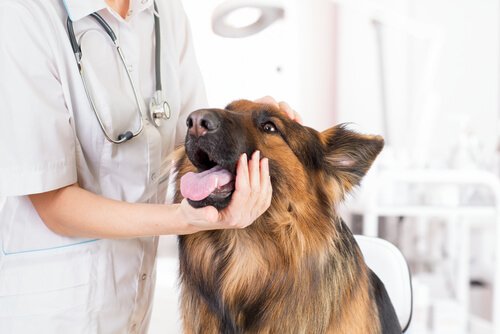Behavioral Dog Therapy

Dogs, like humans, need well-established parameters of behavior and life skill to shape them into sociable, friendly and adoptable pets. This is especially important during their first five months of life because it will help your dog develop a pleasant lifestyle in a family setting.
Some dogs have socially unacceptable or undesirable behaviors for the people and animals in their surroundings.
These include aggression, anxiety, signs of threat, exaggerated reactions or the inability to control emotions, which can even result in harming other people, animals or themselves.
Many of these problems actually derive from constant stressful situations for the dog. Their reactions are the result of the owner not knowing how to properly handle the situation. However, many of these problems can be solved with stress-reduction therapy.
Behavioral problems
Behavioral problems in dogs can be caused by:
- Organic: any physical problem that caused discomfort or pain
- Non-organic: when the animal’s behavior comes from a non-physical origin. For example, if the dog experienced a difficult or traumatic puppy stage.
How do these problems appear?
- Aggression. This type of behavior needs specialized and urgent treatment because the animal may cause harm to other animals or people.
- Fears and phobias. It can be people, objects, sounds, or other dogs and animals. The owner should ideally help them by supporting them in their process of overcoming their fears.
- Destructive behavior.
- Excessive Barking.
- Separation anxiety. In this case, therapy is important to help your dog gain confidence and to keep them calm when they’re home alone.
- Excitation and hyperactivity. This issue is very tiring for both the dog and those who live with him. The dog is constantly active and tense, and cannot relax.

It’s important to treat these behaviors, both for the welfare of the dog and the owners. If the behavior becomes too much to handle, some owner may end up abandoning, mistreating or putting their dog asleep.
The objective of behavioral therapy
The owner’s commitment and consistency is the most important part of the treatment. If you aren’t willing to teach your pet good habits, it’s difficult to help improve their behavior later on in life. The emotional aspect is also important. This consist of having understanding, empathy, and patience for your dog throughout the entire process.
It’s recommended to star behavioral training before the puppy reaches five months of age. The objective of behavioral therapy isn’t to make the dog obedient, but to improve the relationship between the dog and the owner. It’s to ensure that your daily life with your pet will be enjoyable for both of you.
Evaluation
During a veterinary appointment, the specialist will ask a series of questions to the owner and anyone that spends a lot of time with the dog. The questions may be: how the pet was born, the number of puppies that were in the litter, and what the mother was like.
All the questions are intended to analyze the origin of the dog’s behavioral problems. This will help them decide on an effective treatment.

What does behavioral therapy do?
This depends on the cause of the inappropriate behavior that you want to fix. However, there are general tips that are important for the dog’s life. To name a few:
1. Establishing routines
This includes having well-established schedules for feeding, relieving themselves, play time, walks and rest. Meeting these basic needs in an orderly fashion will help both of you have a more organized and peaceful life.
2. Daily physical exercise
This point is especially important for domestic dogs. As we’ve seen, the most common cause of unwanted behavior in dogs is stress accumulation. The best way to get rid of daily stress is with a good walk or even run (depending on the breed and activity level of the dog).
A sedentary lifestyle carries significant risks for dogs, such as obesity and other related diseases. Whatever the breed of the animal, all dogs need daily exercise.
